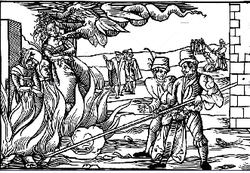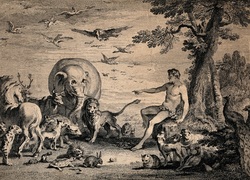 There is a longstanding view that people all have access to the same facts and their political differences are due to different moral values. This may never have been true, but at the very least it is an inadequate framework for understanding contemporary political disagreements. C.S. Lewis was once presented with an argument for moral progress. We must have developed better moral principles, he was told, since years ago there were witch-burnings but nowadays the majority of Englishmen finds this practice ghastly. His response is instructive: “But surely the reason we do not execute witches is that we do not believe there are such things. If we did—if we really thought that there were people going about who had sold themselves to the devil and received supernatural powers from him in return and were using these powers to kill their neighbors or drive them mad or bring bad weather, surely we would agree that if anyone deserved the death penalty, then these filthy quislings did.” He then spells out his point more precisely, “There is no difference of moral principle here: the difference is simply about matter of fact.”[1] Those who burn witches and those who don’t, according to Lewis, differ more in their beliefs about what is the case than in their moral values. Many of the disagreements tearing Americans apart this election cycle are differences not of principles but of facts.
3 Comments
 A reading from the Psalms: "The heavens declare the glory of God, and the sky above proclaims his handiwork. Day to day pours out speech, and night to night reveals knowledge.” Psalm 19:1-2 In at least one sense, science is the original human vocation, a call to share with God in his wonder-filled attention to his creation. In Genesis, we see that as God creates, he calls the different things he makes “good.” When creation is finished and God beholds “everything that he had made,” he declares it “very good.” Then he does something remarkable. He places his final creation—Adam—in the Garden of Eden and gives him a task: to name each creature. Thus, God not only rejoices in the goodness of his creative work, he creates beings who can share in knowing and appreciating it in its particularities. Thus, we see that the original, pure communion between God and man is focused, not in on the relationship between the two of them as individuals, but out toward all creation. |
Archives
September 2020
Categories
All
|
 RSS Feed
RSS Feed